November 12, 2018 •
Monday’s LobbyComply News Roundup
Campaign Finance National: Corporate PACs Try to Rebuild Their Reputations After Midterms by Lorraine Woellert for Politico Elections National: In ‘Rainbow Wave,’ LGBT Candidates Are Elected in Record Numbers by Christina Caron (New York Times) for WRAL North Carolina: Details […]
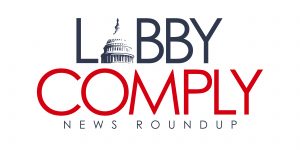 Campaign Finance
Campaign Finance
National: Corporate PACs Try to Rebuild Their Reputations After Midterms by Lorraine Woellert for Politico
Elections
National: In ‘Rainbow Wave,’ LGBT Candidates Are Elected in Record Numbers by Christina Caron (New York Times) for WRAL
North Carolina: Details of NC’s New Voter ID Requirement Still Need to Be Worked Out by Sarah Krueger for WRAL
Ethics
National: Ex-Congressman Sentenced to 10 Years for Stealing Charitable Donations by Matt Stevens (New York Times) for WRAL
New York: Eric Schneiderman Won’t Face Criminal Charges Over Allegations of Abuse by Camila Domonoske for National Public Radio
Oklahoma: Oklahoma Watch: Governor-elect Kevin Stitt’s business ties could cause conflicts of interest by Paul Monies (Oklahoma Watch) for Tulsa World
Lobbying
National: House Democrats’ Win Fuels K Street Hiring by Theodoric Meyer and Marianne Levine for Politico
Florida: Miami Tells Officials Not to Talk to Beckham Team Until Ethics Complaint Is Resolved by Joey Flechas for Miami Herald
November 9, 2018 •
Democrat Janet Mills Becomes Maine’s First Woman Governor
Maine has elected state Attorney General Janet Mills as governor, making her the first woman to hold the state’s highest office. Mills is taking over for Republican Paul LePage, who is known for being combative. In addition to making racist […]
 Maine has elected state Attorney General Janet Mills as governor, making her the first woman to hold the state’s highest office. Mills is taking over for Republican Paul LePage, who is known for being combative.
Maine has elected state Attorney General Janet Mills as governor, making her the first woman to hold the state’s highest office. Mills is taking over for Republican Paul LePage, who is known for being combative.
In addition to making racist remarks, he led efforts to block Medicaid expansion in Maine, even after voters approved the move in a ballot initiative. In fact, LaPage sued Mills after she refused to represent him in several federal cases.
Mills, who was the first woman elected as a district attorney in New England, was also the first female attorney general of Maine.
Her main priorities for the state include increasing access to Medicaid by funding the efforts with the $35 million she secured from a tobacco settlement, providing broadband access in rural areas and addressing the opioid crisis.
November 9, 2018 •
Alabama Gov. Kay Ivey Elected for First Full Term
Incumbent Republican Governor Kay Ivey won her first full term as Alabama governor defeating Democratic challenger and Tuscaloosa mayor Walt Maddox 59.6 percent to 40.4 percent. Ivey, who was elected lieutenant governor in 2014, was sworn in as governor last […]
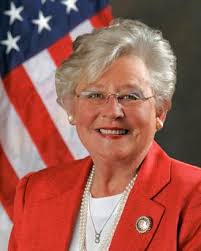 Incumbent Republican Governor Kay Ivey won her first full term as Alabama governor defeating Democratic challenger and Tuscaloosa mayor Walt Maddox 59.6 percent to 40.4 percent.
Incumbent Republican Governor Kay Ivey won her first full term as Alabama governor defeating Democratic challenger and Tuscaloosa mayor Walt Maddox 59.6 percent to 40.4 percent.
Ivey, who was elected lieutenant governor in 2014, was sworn in as governor last year when her predecessor Robert J. Bentley resigned on April 10, 2017.
Ivey is Alabama’s first Republican female governor and second female governor.
Alabama, a Republican stronghold state, has not elected a Democratic governor since 1998.
November 9, 2018 •
Steve Sisolak Wins Seat Against Adam Laxalt in Nevada
In a state sweep, Democratic candidate Steve Sisolak won the governor’s race, ending twenty years of Republican control. Nevada’s gubernatorial election was marked by heavy turnout, which kept voters casting ballots for nearly three hours after polls where scheduled to […]
 In a state sweep, Democratic candidate Steve Sisolak won the governor’s race, ending twenty years of Republican control.
In a state sweep, Democratic candidate Steve Sisolak won the governor’s race, ending twenty years of Republican control.
Nevada’s gubernatorial election was marked by heavy turnout, which kept voters casting ballots for nearly three hours after polls where scheduled to close, according to the Washington Times.
Steve Sisolak, Clark County Commissioner, beat Republican Adam Laxalt, the state’s attorney general, winning with 49.47 percent of the vote, in what’s called “one of the tightest gubernatorial races in recent Nevada memory.”
Notably, 12 members of Laxalt’s family published an op-ed in the Reno Gazette-Journal opposing his gubernatorial run, and outgoing republican governor Brian Sanodval did not endorse Laxalt.
Sisolak additionally ran against independent candidate Ryan Bundy (son of Cliven Bundy), who received less than 2 percent of the state’s vote.
November 9, 2018 •
No Surprise, Abbott Wins Re-election in Texas
Governor Greg Abbott won re-election in Texas, easily defeating democratic challenger Lupe Valdez. Abbott won 55.8 percent to Valdez’s 42.5 percent. This was a win many saw coming, as Abbott led in all polls preceding the election. A conservative state, […]
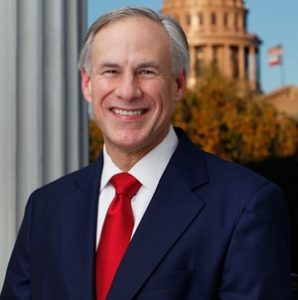 Governor Greg Abbott won re-election in Texas, easily defeating democratic challenger Lupe Valdez.
Governor Greg Abbott won re-election in Texas, easily defeating democratic challenger Lupe Valdez.
Abbott won 55.8 percent to Valdez’s 42.5 percent. This was a win many saw coming, as Abbott led in all polls preceding the election.
A conservative state, Texas has elected a republican governor in every election since 1994. The race was largely uneventful compared to previous elections.
A former Dallas County sheriff, Valdez ran as an advocate of the Texas working class.
Abbott mostly ignored her during the race and touted the successes of his first term in office and used his large fundraising efforts to assist candidates in down-ballot races.
November 9, 2018 •
News You Can Use – November 9, 2018
National: Forget the Russians. On This Election Day, It’s Americans Peddling Disinformation and Hate Speech. Washington Post – Craig Timberg and Tony Romm | Published: 11/6/2018 Even as Silicon Valley has become more aggressive in battling foreign efforts to influence […]

National:
Forget the Russians. On This Election Day, It’s Americans Peddling Disinformation and Hate Speech.
Washington Post – Craig Timberg and Tony Romm | Published: 11/6/2018
Even as Silicon Valley has become more aggressive in battling foreign efforts to influence U.S. politics, it is losing innumerable cat-and-mouse games with Americans who are eagerly deploying the same techniques used by the Russians in 2016. Experts point to a rampant online spread of misleading reports and images about the migrant caravan in Mexico, for example – and especially the demonstrably false allegations that billionaire George Soros is funding a violent “invasion” of the United States. Accounts controlled by Russians probably helped amplify such misleading narratives, but the evidence so far is they started with American political activists who are increasingly adept at online manipulation techniques but enjoy broad free-speech protections that tech companies have been reluctant to challenge.
Industries Turn Freedom of Information Requests on Their Critics
WRAL – Elizabeth Williamson | Published: 11/5/2018
Dennis Ventry Jr., a law professor at the University of California, Davis, drew the ire of tax preparation companies by criticizing a deal they have to provide a free tax filing service through the IRS. The companies promptly hit back with a tactic that corporations, lobbyists, and interest groups are increasingly using against academic researchers: their trade coalition filed a public records request with the university seeking everything Ventry had written or said about the companies this year, including emails, text messages, voice mails, and hand-jotted notes. It was just one example of how both state-level public records laws and the Freedom of Information Act, written to ensure transparency and accountability in government, have morphed into potent weapons in legal and business disputes, raising questions about the chilling effects, and cost, they impose on targets who are doing research in controversial or sensitive fields.
Federal:
Anyone Can Make a Super PAC – Even Prisoners and Kids Who Can’t Vote
Center for Responsive Politics – Kaitlin Washburn | Published: 11/1/2018
Super PACs wield massive financial power and influence in elections. Just this cycle alone, super PACs registered with the FEC have received over $1.3 billion and have spent $695 million. And by following a few simple steps, most anyone can own a super PAC. The Center for Responsive Politics identified eight super PACs created by people who cannot participate in elections. Some of them were started by teenagers who cannot vote, while others were formed by people in prison.
Far-Right Internet Groups Listen for Trump’s Approval, and Often Hear It
MSN – Kevin Roose and Ali Winston (New York Times) | Published: 11/4/2018
As President Trump waged a fear-based campaign to drive Republican voters to the polls for the midterm elections, far-right internet communities have been buoyed as their once-fringe views have been given oxygen by Republicans. These radical communities have entered into a sort of imagined dialogue with the president. They create and disseminate slogans and graphics and celebrate when they show up in Trump’s Twitter feed days or weeks later. They carefully dissect his statements, looking for hints of their influence. And when they find those clues, they take them as evidence that Trump is “/ourguy/,” a label for people internet extremists believe share their views, but who are unable to say so directly in public.
Lobbyists Hit Campaign Trail to Help Old Bosses, Earn ‘a Little Bit of Currency’
Politico – Theodoric Meyer | Published: 11/3/2018
Members of Congress received help before Election Day from a tiny but influential subset of on-the-ground volunteers: Washington D.C. lobbyists eager to help their old bosses, and perhaps their own careers. Lobbyists fanned out across the country to knock on doors for favored candidates, nearly a dozen of them said in interviews and emails. Building relationships with lawmakers and their staffs is crucial to success on K Street and spending a couple of days knocking on doors is one way to strengthen that bond. Some in the industry also remain close to old bosses on Capitol Hill or just want to get out of Washington and dabble in campaigning for a few days.
Sessions’s Ouster Throws Future of Special Counsel Probe into Question
MSN – Rosalind Helderman, Matt Zapotosky, and Carol Leonnig (Washington Post) | Published: 11/7/2018
Attorney General Jeff Sessions resigned at the request of President Trump, causing uncertainty in the investigation of Russian interference in the 2016 election. Trump named as acting attorney general Matthew Whitaker, Sessions’ chief of staff. A Justice Department official said Whitaker would assume final decision-making authority over special counsel Robert Mueller’s probe. As a legal commentator, Whitaker has said Mueller appeared to be taking his investigation too far. There were immediate calls by Democrats and watchdogs for Whitaker to recuse himself. Democrats, emboldened by winning control of the U.S. House, also promised to investigate Sessions’ forced resignation and suggested Trump’s actions could amount to obstruction of justice if he intended to disrupt the criminal inquiry.
Three Candidates Indicted on Felony Fraud Charges Survive Midterms. One Just Barely.
Washington Post – Meagan Flynn | Published: 11/7/2018
Three Republican candidates facing an assortment of corruption charges appeared to squeak past their Democratic opponents to hang onto their jobs. They include U.S. Rep. Duncan Hunter, indicted on charges of wire fraud and accusations he funded a luxurious lifestyle with campaign donations; U.S. Rep. Chris Collins, indicted on insider trading charges; and Texas Attorney General Ken Paxton. indicted on felony securities fraud charges in state court, accused of lying to friends and potential investors about his financial stake in a technology company. Despite the close races in solid-red territory, their apparent victories highlight the polarizing political climate in which criminal investigations into elected officials are frequently met with more sympathy among supporters than scorn.
White House Shares Doctored Video to Support Punishment of Journalist Jim Acosta
MSN – Drew Harwell (Washington Post) | Published: 11/8/2018
CNN’s Jim Acosta had his White House press credentials revoked, with the Trump administration claiming he manhandled a female intern. During a press conference, Acosta got into a spat with the president and persisted in asking questions, and a female intern tried to take his microphone away from him. White House Press Secretary Sarah Sanders posted an edited video of the incident where the action is generally slowed down but speeds up right before the moment of contact to create the false impression of a deliberate jab on the part of Acosta. The event highlighted how video content, seen as a verification tool for truth and confirmation, has become as vulnerable to political distortion as anything else.
From the States and Municipalities:
Florida: Before Going to Prison, Former Opa-locka Commissioner Worked on Political Campaigns
Miami Herald – Jay Weaver and Maya Kaufman | Published: 11/6/2018
Before he surrendered to a correctional facility, former Opa-locka City Commissioner Luis Santiago – who pleaded guilty to pocketing thousands of dollars in bribes – spent the fall election season working as a campaign aide for John Riley, an Opa-locka commissioner running for mayor, and other candidates on the November 6 ballot. Riley said he had no qualms about hiring Santiago as a part-time campaign worker, despite his pleading guilty to extorting money from Opa-locka businesses seeking city permits and contracts. “It kept his mind busy and gave him a sense of purpose,” Riley said. “It’s depressing knowing that you’re going to be facing prison.”
Missouri: Amendment 1: Voters strongly support Clean Missouri redistricting plan, ethics reform
Columbia Missourian – David Reynolds, Thomas Oide, and Tessa Weinberg | Published: 11/6/2018
Amendment 1 was approved by Missouri voters. It bans all lobbyist gifts in the General Assembly worth more than five dollars and requires politicians to wait at least two years after the conclusion of the legislative session in which they last served before becoming lobbyists. Amendment 1 also lowers the $2,600 campaign contribution limit for state legislative candidates and requires legislative records to be subject to the state’s open records law. The amendment’s changes to the redistricting process have caused the most controversy. A nonpartisan state demographer will be tasked with drawing the districts and a bipartisan commission will review the results.
New York: Lobbyist Arrested, Accused of Bribing State Legislator
Rochester Democrat and Chronicle – Gary Craig | Published: 11/1/2018
Albany-based lobbyist Robert Scott Gaddy faces federal charges for offering to pay a bribe during an investigation that already includes the arrest of New York Assemblyperson Joseph Errigo. Gaddy’s arrest grew out of an FBI investigation into fraud and corruption in a redevelopment project in Rochester. Federal authorities say that while investigating the project, agents learned of possible criminal conduct by Gaddy. A person working with the FBI allegedly approached Gaddy about paying a bribe to a member of the Assembly. “Yeah … yeah, no problem,” Gaddy responded, according to the FBI. Authorities alleged Errigo took money from a lobbyist to introduce legislation designed to stop the project.
North Dakota: Aimed at Combating Corruption, North Dakota Voters Pass Measure 1
Dickinson Press – Tu-Uyen Tran | Published: 11/6/2018
Voters in North Dakota approved Measure 1 on the November 6 ballot. It will, among other provisions, require the Legislature to pass laws requiring the disclosure of the “ultimate and true source” of money spent on media to influence campaigns, ban lobbyists from giving gifts to public officials, prohibit politicians from using campaign funds for personal purposes, and create a state ethics commission to investigate violations.
South Dakota: Out-Of-State Initiative Money Ban Likely to Face Challenge
Rapid City Journal – James Nord (Associated Press) | Published: 11/7/2018
South Dakota’s first-in-the-nation law that bans out-of-state money from ballot question campaigns faces an uncertain future, with critics saying it is likely to be challenged in court. The U.S. Supreme Court has interpreted the Constitution’s free-speech protections as prohibiting any limitations on money in ballot measure elections, Paul S. Ryan, vice president of policy and litigation at Common Cause, has said. The high court has said contributions to candidates can be limited to prevent the corruption of public officials. At least two states, Alaska and Hawaii, restrict out-of-state donations to candidates, but Alaska’s limits face a court challenge.
November 8, 2018 •
Citizens of Portland Vote to Limit Large Political Contributions
Portland, Oregon voters passed a campaign finance measure to limit large political campaign contributions. The amended charter limits independent expenditures to an aggregate of $5,000 per individual and an aggregate of $10,000 per political committee, provided contributions to the committee […]
 Portland, Oregon voters passed a campaign finance measure to limit large political campaign contributions.
Portland, Oregon voters passed a campaign finance measure to limit large political campaign contributions.
The amended charter limits independent expenditures to an aggregate of $5,000 per individual and an aggregate of $10,000 per political committee, provided contributions to the committee by individuals does not exceed $500 per individual per year.
The campaign limits are vulnerable to legal challenge. In 1997, the Oregon Supreme Court struck down statewide campaign finance limits as a violation of free speech protection outlined by the Oregon Constitution.
Prior to the passage of this measure, the City of Portland adopted a public finance system by City Council vote.
It provides matching funds to eligible candidates for mayor, city commissioner, and auditor with funding to begin in the 2019-2020 election.
November 8, 2018 •
Utah Special Session to Address Medical Marijuana
This week, Utah voters passed Proposition 2 legalizing medical marijuana. The highly controversial ballot initiative caused Gov. Gary Herbert to announce his intention to call a special session on medical marijuana regardless of the outcome of this week. The proposition […]
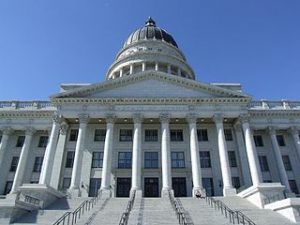
This week, Utah voters passed Proposition 2 legalizing medical marijuana.
The highly controversial ballot initiative caused Gov. Gary Herbert to announce his intention to call a special session on medical marijuana regardless of the outcome of this week.
The proposition will go into effect on December 1, 2018, and Gov. Herbert’s office announced its intent this week to convene a special session shortly thereafter.
Under state law, an initiative passed by statewide vote can be amended by the legislature after it becomes law.
Gov. Herbert has already discussed changes and compromises with lawmakers and proponents of Proposition 2. This will be the state’s third special session this year.
November 8, 2018 •
Akron Voters Approve Primary Date Change
A majority of Akron voters approved Charter Amendment Issue 9, moving the city’s primary date from September to May. The date change is expected to save the city money, boost voter turnout, and bring the Board of Elections into compliance […]
 A majority of Akron voters approved Charter Amendment Issue 9, moving the city’s primary date from September to May.
A majority of Akron voters approved Charter Amendment Issue 9, moving the city’s primary date from September to May.
The date change is expected to save the city money, boost voter turnout, and bring the Board of Elections into compliance with state law by enabling it to meet a deadline to get ballots to overseas voters 45 days before the November general election.
November 8, 2018 •
Mark Gordon Takes Over in Wyoming
Republican Mark Gordon was elected governor of Wyoming over Democrat Mary Thorne. Also running were Rex Rammell of the Constitution Party and Lawrence Struempf of the Libertarian Party. With 99% of precincts reporting, Gordon won with 67 percent of the […]
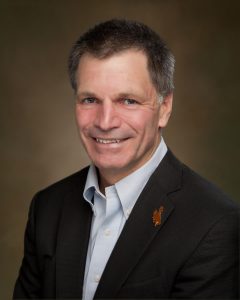 Republican Mark Gordon was elected governor of Wyoming over Democrat Mary Thorne.
Republican Mark Gordon was elected governor of Wyoming over Democrat Mary Thorne.
Also running were Rex Rammell of the Constitution Party and Lawrence Struempf of the Libertarian Party.
With 99% of precincts reporting, Gordon won with 67 percent of the vote to Thorne’s 27 percent, Rammell’s 3 and Struempf’s 1.
Gordon was raised on his family’s ranch in Kaycee and attended college in Vermont.
After working in the energy industry, Gordon was appointed state treasurer in 2012 and elected to a full term in the 2014 primary.
November 8, 2018 •
Thursday’s LobbyComply News Roundup
Campaign Finance Arizona: “Arizona Voters OK Public Campaign Finance Change” by the Associated Press for Arizona Daily Star New York: “NYC Charter Amendments Win Approval from Voters” by Noah Manskar for New York City Patch Oregon: “Portland Voters Pass Campaign […]
 Campaign Finance
Campaign Finance
Arizona: “Arizona Voters OK Public Campaign Finance Change” by the Associated Press for Arizona Daily Star
New York: “NYC Charter Amendments Win Approval from Voters” by Noah Manskar for New York City Patch
Oregon: “Portland Voters Pass Campaign Finance Limits” by Amelia Templeton for Oregon Public Broadcasting
Elections
National: “Democrats Oust Walker in Wisconsin and Kobach in Kansas but Fall Short in Florida and Ohio” by Adam Nagourney, Sydney Ember, and Patricia Mazzei (New York Times) for WRAL
National: “Three Candidates Indicted on Felony Fraud Charges Survive Midterms. One Just Barely.” by Meagan Flynn for Washington Post
National: “Midterm Elections: Democrats flip House as GOP expands Senate majority” by David Fahrenthold, Isaac Stanley-Becker, and Elise Viebeck for Washington Post
Ethics
National: “Sessions’s Ouster Throws Future of Special Counsel Probe into Question” by Rosalind Helderman, Matt Zapotosky, and Carol Leonnig for Washington Post
Missouri: “Amendment 1: Voters strongly support Clean Missouri redistricting plan, ethics reform” by David Reynolds, Thomas Oide, and Tessa Weinberg for Columbia Missourian
New Mexico: “New Mexico Voters OK Ethics Commission” by Associated Press for KRWG
North Dakota: “Aimed at Combating Corruption, North Dakota Voters Pass Measure 1” by Tu-Uyen Tran for Dickinson Press
Legislative Issues
Utah: “Voters Favor Proposed Constitutional Amendment Empowering Lawmakers to Call Themselves into Special Session” by Dan Harrie for Salt Lake Tribune
Redistricting
National: “Anti-Gerrymandering Reforms Sweep the Nation Tuesday” by Shawn Griffiths for IVN
November 7, 2018 •
Tennessee Elects Bill Lee Governor
The people of Tennessee voted to elect Republican Bill Lee as governor, defeating Democrat Karl Dean. 26 Independents also ran for governor, each receiving 0.2 percent or less of the vote. Many of the Independents were part of the Libertarian […]
The people of Tennessee voted to elect Republican Bill Lee as governor, defeating Democrat Karl Dean.
26 Independents also ran for governor, each receiving 0.2 percent or less of the vote.
Many of the Independents were part of the Libertarian Party, which placed 15 candidates on the ballot to protest Tennessee law which has fewer restrictions on Independent candidates being added to the ballot.
Lee has worked for his family’s construction business, the Lee Company, serving as CEO and Chairman prior to his candidacy. He also helps run the family’s Triple L Ranch.
Lee is native to Tennessee, continuing to live in Franklin.
November 7, 2018 •
J.B. Pritzker Defeats Incumbent Bruce Rauner to Take Illinois’ Governor Race
Billionaire Democrat J.B. Pritzker defeated first-term Republican Gov. Bruce Rauner, by a margin of 54 percent to 39.3 percent. Less than an hour after polls closed, Rauner conceded his re-election bid, giving Democrats near total control of Illinois’ state government. […]
 Billionaire Democrat J.B. Pritzker defeated first-term Republican Gov. Bruce Rauner, by a margin of 54 percent to 39.3 percent. Less than an hour after polls closed, Rauner conceded his re-election bid, giving Democrats near total control of Illinois’ state government.
Billionaire Democrat J.B. Pritzker defeated first-term Republican Gov. Bruce Rauner, by a margin of 54 percent to 39.3 percent. Less than an hour after polls closed, Rauner conceded his re-election bid, giving Democrats near total control of Illinois’ state government.
“Voting is an act of optimism that the levers of our Democracy still work,” Pritzker told supporters moments after declaring victory. “You embody that optimism. You light the beacon fire on the hill of history that signals from one generation to another that these are the things that we stand and fight for.”
In addressing the exuberant crowd, he reminded them that the first McDonald’s opened here and the ice cream sundae was born here, as well.
“We taught the nation how to debate, how to shuffle to the Super Bowl and how to eat a pizza,” he said.
According to U.S. Senator Dick Durbin, “Pritzker did something different in this campaign,” Durbin said. “Here was a Chicagoan, clearly a Chicagoan, who wasted no time getting Downstate. I looked around and thought, ‘This is what I’ve been looking for — a governor who starts off by unifying the whole state.’”
In his concession speech, Rauner stated, “This is a time for us to come together. This is a time for us to unite. To Mr. Pritzker, I said, Godspeed. I hope and pray you serve Illinois well.”
November 7, 2018 •
Lt. Governor Brad Little Takes Idaho’s Governor’s Race
Longtime Republican lawmaker and Idaho Lieutenant Governor Brad Little has defeated Democratic challenger Paulette Jordan by a margin of 59.5 percent to 38.4 percent to become Idaho’s next governor. Jordan, a former state lawmaker and member of the Coeur d’Alene […]
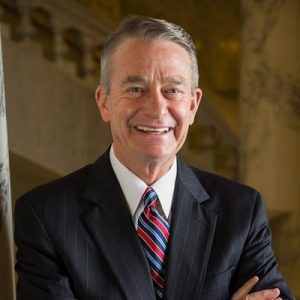 Longtime Republican lawmaker and Idaho Lieutenant Governor Brad Little has defeated Democratic challenger Paulette Jordan by a margin of 59.5 percent to 38.4 percent to become Idaho’s next governor.
Longtime Republican lawmaker and Idaho Lieutenant Governor Brad Little has defeated Democratic challenger Paulette Jordan by a margin of 59.5 percent to 38.4 percent to become Idaho’s next governor.
Jordan, a former state lawmaker and member of the Coeur d’Alene Tribe, was the first woman to earn her party’s nomination in Idaho. Even though there was significant national media attention given to Jordan, Little’s win was predictable in this intensely conservative state.
Little has been lieutenant governor since 2009 and ran on a platform to carry on retiring Gov. C.L. “Butch” Otter’s policies that lead to the state’s recent growth.
“Twenty-four years ago Phil Batt broke a 24-year cycle of Democrats having control of the governor’s office,” Little said during his victory speech Tuesday night before a packed room of cheering supporters.
“This is the 24th anniversary of that and Idaho is still a very red state. I look forward to working with President Trump as we continue to allow Idahoans to be the masters of their own destiny,” he said.
“Idaho has been fairly successful, but we have more work to do in taking back the authority that the federal government over the years has taken, whether it is in the areas of education, transportation, health care, public lands management and all of the areas of regulation.”
State and Federal Communications, Inc. provides research and consulting services for government relations professionals on lobbying laws, procurement lobbying laws, political contribution laws in the United States and Canada. Learn more by visiting stateandfed.com.

